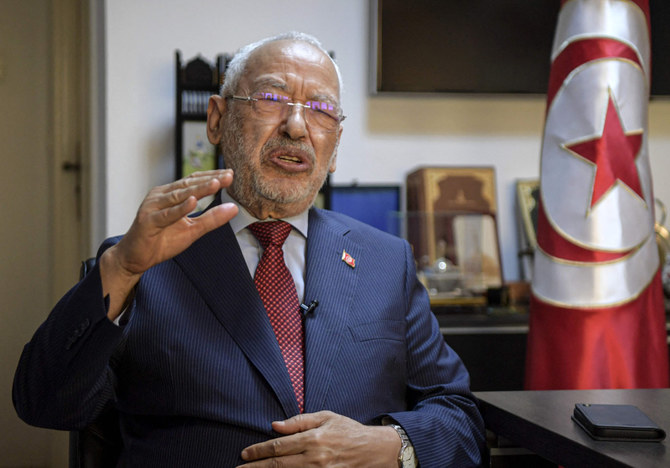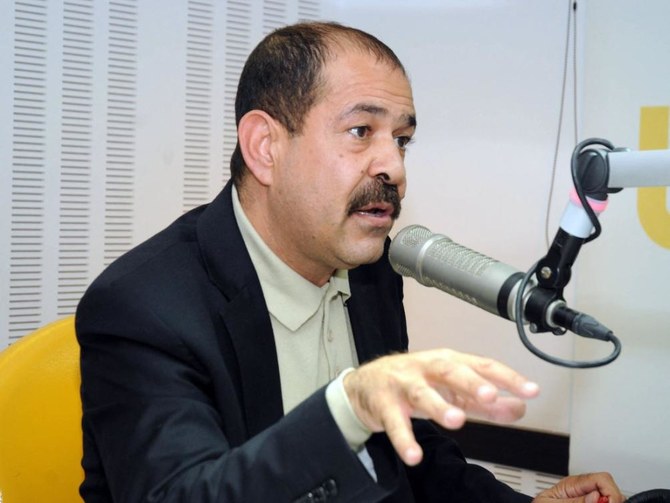Arab News
TUNIS/JEDDAH: Tunisia’s main Islamist political party was on the verge of collapse on Saturday after more than 100 key members resigned in protest against their leader.
Among the 113 members who resigned from the Ennahda party were key figures from the party leadership, including members of parliament and former ministers.
They directed their anger at veteran party leader Rached Ghannouchi, 80, who co-founded the party in 1981 inspired by the Muslim Brotherhood and has led it ever since. “The current party leadership is responsible for Ennahdha’s isolation and largely for the deteriorating situation in the country,” the former members said.
They blamed Ghannouchi for making “bad political choices” and forming “inappropriate alliances” with other movements that “undermined Ennahdha’s credibility.”
Ghannouchi had “failed” and “refused all the advice” that was given to him, they said.
Former Minister of Health Abdellatif Mekki, one of those who resigned, said: “I feel deeply sad … I feel the pain of separation … but I have no choice after I tried for a long time, especially in recent months … I take responsibility for the decision that I made for my country.”
Ghannouchi was Tunisia’s parliamentary speaker until July, when President Kais Saied sacked the government, suspended parliament, removed the immunity of lawmakers and put himself in charge of prosecutions.
On Wednesday, Saied announced decrees that strengthen the powers of his office at the expense of the government and parliament, and said he would rule by decree.
Ennahdha, the largest bloc in parliament, claimed the president had carried out a coup, but Saied’s actions remain overwhelmingly popular with Tunisians. They blame Ennahda for the country’s political and economic paralysis since the removal of dictator Zine El Abidine Ben Ali in 2011, and for the failure to combat the coronavirus pandemic.
Fractious coalitions and short-lived governments since the uprising have failed to resolve mounting social and economic crises. Ennahda officials have demanded that Ghannouchi resign over the party’s response to the crisis, and strategic choices he has made since elections in 2019. Last month Ghannouchi dismissed the party’s executive committee in an effort to calm the protests against him.
Ennahda has been the most powerful party in Tunisia since the 2011 revolution, and has played a role in backing successive coalition governments. However, it has lost support as the economy stagnated and public services declined.
Ghannouchi admitted last week that his party was in part responsible for Saied taking executive power. “Ennahdha is not in power but it backed the government, despite some criticism we had,” he said.
(With Reuters)






















